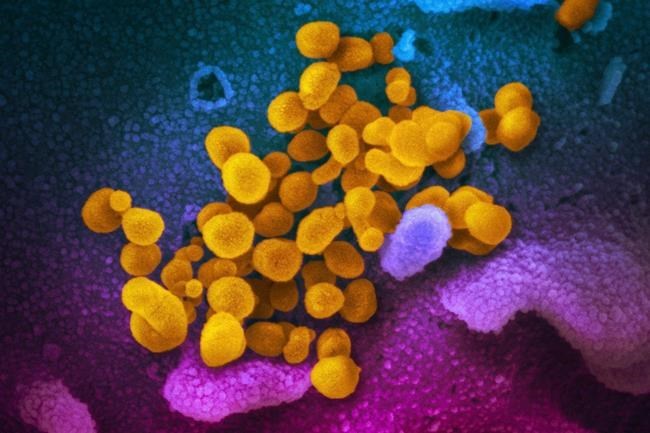OTTAWA — Canada expects to make a financial contribution to the international vaccine coalition known as COVAX, the federal government says, aiming to equitably distribute an eventual COVID-19 vaccine to poorer countries that couldn't afford it.
The decision contrasts with Tuesday's move by the Trump administration to have the United States opt out of the alliance of more than 150 countries because the program is linked to the World Health Organization.
President Donald Trump ended U.S. funding to the WHO in July because, he says, it is unduly influenced by China and needs to be reformed.
A spokesman for Karina Gould, Canada's international development minister, says the Trudeau government is working on the details of a spending commitment to what's called the "COVAX Facility," which is designed to ensure developing countries have fair access to a COVID-19 cure.
"There's definitely an interest by our government to be part of the facility. That I can confirm," Louis Belanger said in an interview.
"We're looking at our options now."
COVAX also allows investing countries to be given early access for up to 20 per cent of their populations.
The initiative is aimed at circumventing so-called vaccine nationalism — the scramble by individual countries to secure vaccines for their own populations, often by pre-buying doses directly from pharmaceutical companies.
And indeed Prime Minister Justin Trudeau announced on Monday the government's latest move in its plan to pre-buy tens of millions doses of potential vaccines, adding deals with two American companies working on promising candidates.
In June, however, Trudeau co-wrote an opinion column in the Washington Post along with the leaders of Spain, Ethiopia, New Zealand and South Korea, promoting COVAX as an equitable way of helping stamp out the pandemic everywhere.
Monday had been a deadline for the countries to move beyond simple expressions of interest and make financial pledges. But that deadline has now been moved to Sept. 18.
Belanger said the Liberal government is aiming to have a decision before then.
The European Union met the original Monday deadline when European Commission President Ursula von der Leyen announced its contribution of almost $620 million (400 million euros).
Von der Leyen said the contribution was an act of "global solidarity" but she also kept the door open to individual European countries' continuing to pursue a vaccine for their own purposes.
"No country, no continent can defeat the coronavirus on its own. We have to join forces," she said.
"In parallel, we continue negotiating with pharmaceutical companies to purchases doses of vaccines on behalf of the EU member states."
After the U.S. opted out, a White House spokesman said it would continue to engage with international organizations in the fight against COVID-19 but added: "we will not be constrained by multilateral organizations influenced by the corrupt World Health Organization and China."
A spokeswoman for GAVI, the Vaccine Alliance, said Canada and several countries have expressed interest in joining COVAX but the organization would like to see firm dollar commitments by Sept. 18 with "up-front payments" to follow no later than Oct. 9.
"Canada has earlier submitted an expression of interest — a non-binding indication of interest — to participate in the COVAX Facility. We are now working on formalizing these EOLs with each country via legally binding agreements and hope to conclude this process before Sept. 18," a GAVI spokeswoman told The Canadian Press in response to emailed questions.
Over the past 20 years, GAVI has become the leading international organization for distributing vaccines to less-developed countries.
The anti-poverty advocacy group called the One Campaign is also pushing Canada to follow through with a firm financial commitment to COVAX.
Gayle Smith, the group's president, said if Canada pledged money, it would set an example for other countries.
Smith said joining would avoid the spectacle that saw rich countries scoop up H1N1 vaccine after that outbreak more than a decade ago and avoid a repeat of the race for personal protective equipment (PPE) at the start of the current pandemic.
In an interview from Washington, Smith said COVAX is a "much more efficient mechanism than a mad scramble. I just hope that the world will take a lesson from the PPE mess and realize it's got the opportunity to get it right this time."
COVAX aims to deliver two billion doses of safe, WHO-approved vaccines by the end of 2021. That would also include giving participating countries access that would cover 20 per cent of their own populations.
"It's arguably a very good model for Canada itself. We're already seeing some signs of vaccine nationalism," said Smith.
"It's way to get in the queue and avoid what happened in H1N1, which was a scramble to grab up what was available as opposed to countries pulling together."
This report by The Canadian Press was first published Sept. 2, 2020.
Mike Blanchfield, The Canadian Press


